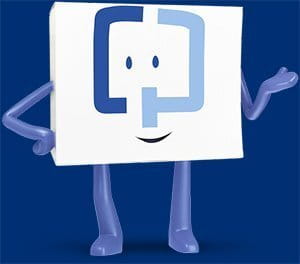Real Cologuard®
story: Susan I.
Screened with Cologuard
By the time Susan was in her early 50s, colon cancer had invaded her circle of family and friends far too many times.
“My husband had colon cancer in 2008. I have had friends pass away from colon cancer. I thought I should honor their memory by taking care of myself.”
It was the push she needed to complete her own screening, first with a colonoscopy in 2010 when she happily crossed screening off her to-do list for the next 10 years. And when her healthcare provider recommended she screen again in 2020 at age 63, she wasn’t going to pass on it. She knew all too well through her loved ones that, with colon cancer, screening regularly may help catch it in earlier stages.1 There was just one thing hanging over Susan – she was hesitant about the prep for a colonoscopy.
“‘I think I have good news for you,’” she recalled her provider sharing. “‘You’d be a good fit for Cologuard.’ He was enthusiastic about it.”
Susan was happy to hear this suggestion, especially since she was at average risk for colon cancer and aware of how important it was that she get screened again. When she learned there was a screening option that did not require any prep, she was eager to get it done.
“After he explained the test and that he’d order it for me to use at home, it seemed much easier.”
Once she collected her sample for the Cologuard kit, it was even easier than she anticipated and her relief compounded. At first, she felt accomplished when she returned her completed kit – “I felt good about it,” she said. “This feeling of Alright, got that done!” And she was relieved when her healthcare provider called with her negative result.
That feeling of accomplishment in getting screened, that feeling of empowerment? So much of it she credits to her husband’s experience, which motivated her not only to get screened in the first place but get screened again – which means talking to her healthcare provider and screening again three years after her negative Cologuard result as recommended by the American Cancer Society.2
“People think ‘I’m not going to get colon cancer, it won’t happen to me,’” she said. “It was a total shock when Gary got it, but the fact that it could be removed, it didn’t spread, and he didn’t need chemotherapy was a really great thing.”
Since supporting Gary through his diagnosis, Susan sees the reasons for regular screening with more clarity – it’s an important step in finding colon cancer for people who are 45 and older and at average risk.1-2 And out of love for Gary and her friends she lost to colon cancer, she refuses to keep that message bottled up.
She’s right, and it’s an unfortunate fact – colon cancer has been called “the most preventable, yet least prevented cancer.”3 And there’s just no reason it should be. Not when there are screening options available, and especially not when there are people like Susan talking about colon cancer screening and urging others to get it done.
For nearly a decade, that has been Susan’s way of honoring those she loves most. People like her friends, who were lost to colon cancer too soon. And people like Gary, whose story could have been a different one had he not screened.
What greater reward is there than that?
References
1. Davidson KW, Barry MJ, Mangione CM, et al. Screening for colorectal cancer: US Preventive Services Task Force recommendation statement. JAMA. 2021;325(19):1965-1977. doi:10.1001/jama.2021.6238
2: Wolf AMD, Fontham ETH, Church TR, et al. Colorectal cancer screening for average‐risk adults: 2018 guidelines update from the American Cancer Society. CA Cancer J Clin. 2018;68(4):250‐281. doi:10.3322/caac.21457
3. Itzkowitz SH. Incremental advances in excremental cancer detection tests. J Natl Cancer Inst. 2009;101(18):1225-1227. doi:10.1093/jnci/djp273
Cologuard is intended to screen adults 45 years of age and older who are at average risk for colorectal cancer by detecting certain DNA markers and blood in the stool. Do not use if you have had adenomas, have inflammatory bowel disease and certain hereditary syndromes, or a personal or family history of colorectal cancer. Cologuard is not a replacement for colonoscopy in high risk patients. Cologuard performance in adults ages 45-49 is estimated based on a large clinical study of patients 50 and older. Cologuard performance in repeat testing has not been evaluated.
The Cologuard test result should be interpreted with caution. A positive test result does not confirm the presence of cancer. Patients with a positive test result should be referred for colonoscopy. A negative test result does not confirm the absence of cancer. Patients with a negative test result should discuss with their doctor when they need to be tested again. False positives and false negative results can occur. In a clinical study, 13% of people without cancer received a positive result (false positive) and 8% of people with cancer received a negative result (false negative). Rx only.

